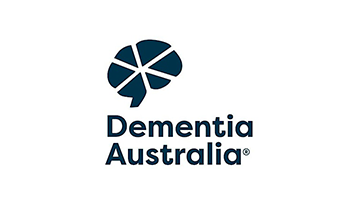Background and Aims
When a change in behaviour escalates for a person living with dementia, this can lead to significant distress for the person and their support team. Often this stems from a lack of understanding about the person, their needs, and strategies that are appropriate for their support.
The use of Behaviour Support Plans in Residential Aged Care should be person-centred, proactively prevent behaviour change, and be updated on a regular basis (Wroth, 2022). Improving regulatory stipulated Individualised Behaviour Support Plans for aged and dementia care is an urgent and critical need for Australia’s 2,684 residential aged care services, where 70 percent of residents are living with dementia. In a webinar hosted by Dementia Australia titled Assessing the Quality of Dementia care, Commissioner Janet Anderson stated that Behaviour Support Planning is ‘where the sector has a significant lift to do’ and that it should ‘be a deliberate focus of providers’ (Dementia Australia, 2022).
In response to this urgent need for education and development in the aged care workforce, Dementia Australia in partnership with Deakin University and BUPA Aged Care formulated two aims to support the sector.
- Aim 1: To develop a learning tool for aged care workers that would increase their Capacity, Capability and Confidence to create and deliver Behaviour Support Plans (BSP).
- Aim 2: Evaluate the effectiveness of the learning tool in building the self-assessed knowledge and confidence of the Aged Care workforce. The implementation of specialised micro-learning tools will enable successful individualised intervention behaviour support plans to facilitate high quality care and enhanced quality of life for individuals living in aged care
What We Did
In response to the messaging from the Aged Care and Safety Commission, Dementia Australia has developed educational modules within the existing Ask Annie mobile platform. The application, built upon evidence-based principles of instructional design and microlearning, provides individuals across the aged care workforce with a mentor in their pocket. ‘Annie’ is an aged-care worker who provides guidance to learners through a series of lessons and quizzes aimed at assessing knowledge.
The Plan Behaviour Support section hosts four modules comprised of 19 lessons. These lessons incorporate branching scenarios based on real life experience, to strengthen capacity, confidence and competence in using a Behaviour Support Plan. The lessons are structured in the framework originally developed by Dementia Support Australia which walks the learner through the behaviour support process, with stages Identify, Assess, Plan, Implement and Evaluate.
Outcomes
The course, which was released in February, has already seen significant success and uptake by the aged care workforce. 9,406 users have accessed the Plan Behaviour Support Modules. 100% of participants involved in the evaluation phase of this project identified that the course improved their understanding of:
- a BSP
- how they can contribute to a BSP
- how documentation contributes to developing support strategies,
- developing meaningful support strategies and
- how to let someone know a BSP is not working.
Impact on Aged Care and Workforce
Access to this course will offer vital education to the aged care workforce, empowering the sector with the necessary tools and understanding of Behaviour Support Plans.
The course, which is free to access, available anywhere across Australia, and consisting of easily digestible information and animations, provides the opportunity to educate a diverse range of the aged workforce including those from regional and remote areas, those from culturally and linguistically diverse backgrounds, and at all levels of the organisational hierarchy.
Resources Developed
The resources developed are housed in the Ask Annie app.
Ask Annie can be downloaded in the Google Play or App Store.
Next Steps
The Ask Annie platform is a key product for Dementia Australia. The plan is to continue building, creating and modifying education within the mobile app which can support members of the aged care workforce.


